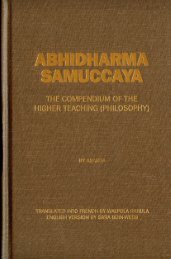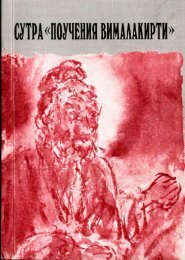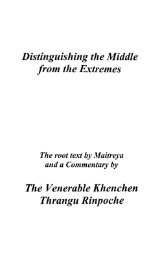Abhidharmakosabhasyam, Volume IV
Abhidharmakosabhasyam, Volume IV
Abhidharmakosabhasyam, Volume IV
Create successful ePaper yourself
Turn your PDF publications into a flip-book with our unique Google optimized e-Paper software.
Footnotes 1369<br />
ca prativigacchati {Ко fa, v.27, trans, p. 814) / asti karma asti vipdkah / kdrakas tu<br />
nopalabhyate у a imdmi ca skandhdn niksipati any dm s ca skandhdn pratisamdadhdti any at ra<br />
dharmasamketdt (the text that we have here, and also Kofa, iii.18, Sutrdlamkdra, xviii.101,<br />
Bodhicaryavatdra, ix.73 which presents some variants) / at ray am dharmasamketo yad<br />
utdsmin satidam bhavati asyotpdddd idam utpadyate {Kosa, iii.18, Bodhicaryavatdra, ibid.) /<br />
avidydpratyaydh samskdrdh ...<br />
81. See Koia, v.27, p. 814; Buddhaghosa, Visuddhi, 602, quotes the Ancients {Pordna):<br />
kammassa kdrako natthi vipdkassa ca vedako. (We see, p. 513, that dukkha, kamma, nibbuti,<br />
and magga exist, but not dukkin, kdraka, nib but a ...)<br />
Same doctrine, or same text, in the sources of the Mahayuna, Madhyamakdvatdra, vi.84,<br />
Siksdmuccaya, 244, 262, Sutrdlamkdra (which depends on Vasubandhu), xviii.101.<br />
82. The meaning of the expression anyatra dharmasamketdt {chos su brdar brtags pa ma<br />
gtogs pa) is not in doubt. The Vydkhyd explains: dharmasamketdd iti prdtityasamutpddalaksandt:<br />
"outside of the combination of the dharmas, that is to say, outside of the successive<br />
causation of the dharmas"\ and elsewhere {ad iii.18): samketa- hetuphalasambandhavyavasthd.<br />
But Paramartha understands samketa as "metaphorical designation," from whence the<br />
translation, "One does not maintain the existence of an agent... except when, conforming<br />
to worldly usage, one says that the dharmas are a pudgala."<br />
83. Sarhyukta, TD 2, p. 182al7; Samyutta, ii.14. Paramartha: "I do not say that a being, apart<br />
from the series of the dharmas, takes up the elements." The Sanskrit edition has: upddatta<br />
iti ph dig una na v ad ami / aharh ced evarh vadeyam upddatta iti atra te kalpah sydd vac an ay a<br />
ko nu bhadanta upddatta iti.<br />
Note nevertheless that the Bhagavat speaks of the man "who casts off this body and<br />
takes up another body," tarn ca kdyam nikkhipati annarh ca kdyam upddiyati {Samyutta,<br />
iv.60). (In the way that the flame which goes far without fuel has for the mind its support<br />
(updddna) so too the being who casts off this body and has not (yet) taken up another body<br />
has thirst for his support, ibid. 400). We have seen above, note 41, the etymology of<br />
pudgala: punah punar...<br />
84. Saeki quotes the Sammitiyanikdya Sdstra, i.7 (fol. 2b).<br />
85. Parinantum means to transform oneself, anyathdtvamdpattum.<br />
On parindma, iii.43a, lOOa-b, v.26, p. 809; the samtatiparindma of the Sautrantikas is<br />
very different, ii.36c, iv.4a.<br />
86. On the relationship between the primary elements {mahdbhuta) and secondary matter<br />
{updddyarupa, bhautika rupa), see i.35, ii.22,65.<br />
87. Vibhdsd, TD 27, p. 66lcl4: "Buddhadeva maintains that rupa is solely mahdbhutas, that<br />
mental states {caittas) are solely mind {citta)\ he says: updddyarupa is solely a type {viiesa)<br />
of the mahdbhutas; the mental states are solely a type of mind . . . The mahdbhutas see<br />
(when they form the organ of the eye)... There is no upddayasabda apart from the primary<br />
elements (that is to say: sound, iabda, is not a separate thing existing independently of the<br />
primary elements). It is the primary elements which are called upaddyafabda."<br />
Vibhdsd, TD 27, p. 730b26: Buddhadeva says: Twenty-two names {mahdbhumikas, etc.),<br />
but solely one real thing, the mana-indriya... The conditioned dharmas are of two natures,<br />
mahdbhutas and citta. Apart from the mahdbhutas, there is no updddyarupa: apart from<br />
citta, there are no caittas.<br />
Compare i, note 146; ii, p. 188.<br />
Saeki: "Vasubandhu mentions the opinion of Buddhadeva, etc., that the primary<br />
elements and secondary matter do not differ; but, as this is not the "correct meaning"<br />
{ch'eng # ШЖ ) °* trie Sarvastivadins, he says that it is dosa, an "error."<br />
88. The Sutra of Vatsagotra, Sarhyukta, TD 2, p. 245cl0. The Bhagavat said to the monk


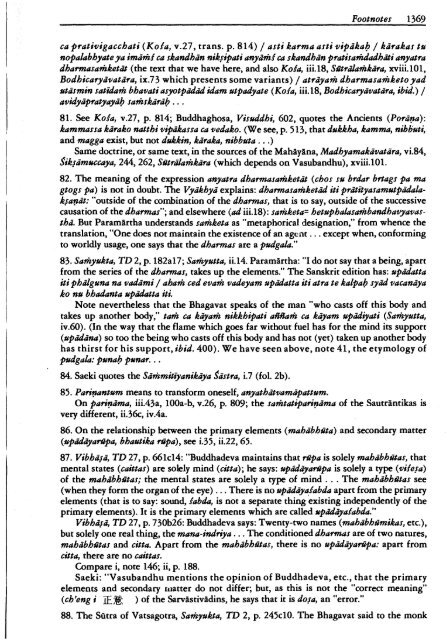
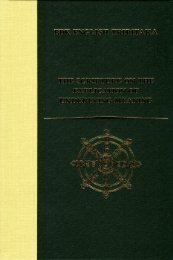
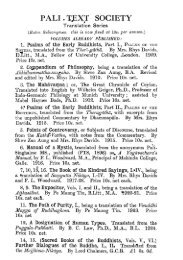
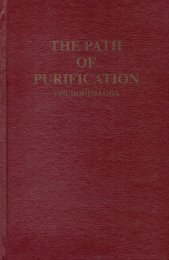
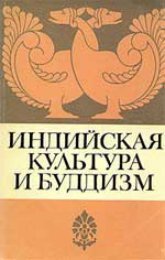
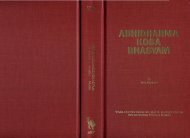

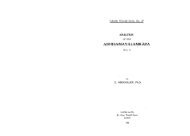

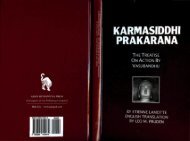
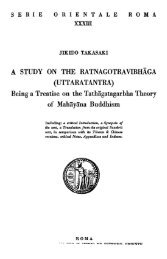
![Long Discourses of the Buddha [Digha Nikaya]](https://img.yumpu.com/32792419/1/164x260/long-discourses-of-the-buddha-digha-nikaya.jpg?quality=85)
